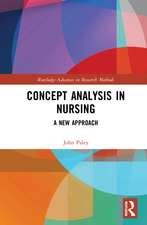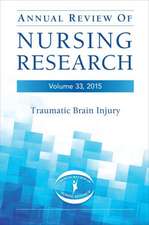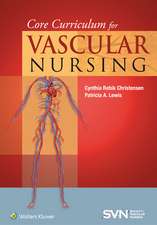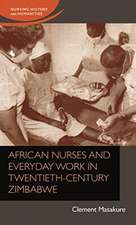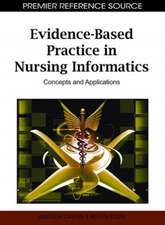Nursing Research Using Phenomenology: Qualitative Designs and Methods in Nursing: Qualitative Designs and Methods
Editat de Mary De Chesnayen Limba Engleză Paperback – 12 noi 2014
"Phenomenology recognizes that...the work of a nurse is the work of an embodied subject, a feeling and knowing and experiencing person in relationship to another embodied subject, the patient, who is another feeling and knowing and experiencing person. Phenomenology in nursing will be concerned with the subjective, living person in her or his lived body in the experience of health and illnessoboth nurse and patient. As such, it could have radical effects."
oJeffrey McCurry, Director, Simon Silverman Phenomenology Center Duquesne University, Pittsburgh, Pennsylvania (From the Foreword)
Phenomenology is a descriptive approach to obtaining knowledge that focuses on capturing the essence of human experience through the point of view of a distinct individual. As a form of qualitative nursing research, it provides a perspective apart from that of empirical sciences, which see the human mind and body as physical or material objects open to study only through empirical science and treatable only through physical remedies. This "how-to" book describes the foundations of phenomenology and the specifics of how to conduct nursing research using phenomenological designs. It is part of an innovative series for novice researchers and specialists alike focusing on state-of-the-art methodologies from a nursing perspective.
Authored by international scholars of qualitative nursing research, the book elucidates the theoretical rationale for using phenomenology, describes its components, and delineates a plan to conduct studies that includes appropriate methods, ethical considerations, and potential pitfalls. The book provides guidance for writing a research proposal that justifies the importance or potential impact of a study and describes how to conduct interviews that best elicit information. It focuses on achieving rigor in phenomenological research in regard to accuracy and replicability, and discusses different types of data collection and analysis and when to use them. Appendices include a list of qualitative research journals, textbooks, and other resources for more in-depth study. Chapters provide helpful advice on interviewing and data analysis. The book will be of value to novice and experienced nurse researchers, graduate teachers and students, in-service educators and students, and nursing research staff at health care institutions.
Key Features: Comprises the first "how-to" guide to conducting qualitative phenomenological research from a nursing perspective Presents a comprehensive plan for conducting studies and appropriate measures, ethical considerations, and potential challenges Guides readers in construction of a research proposal that justifies the importance or potential impact of a study Provides examples of interviews that best elicit information "
Preț: 556.80 lei
Preț vechi: 586.11 lei
-5% Nou
106.54€ • 111.54$ • 88.16£
Carte tipărită la comandă
Livrare economică 07-21 aprilie
Specificații
ISBN-10: 0826126863
Pagini: 220
Dimensiuni: 152 x 226 x 15 mm
Greutate: 0.3 kg
Editura: Springer
Seria Qualitative Designs and Methods







